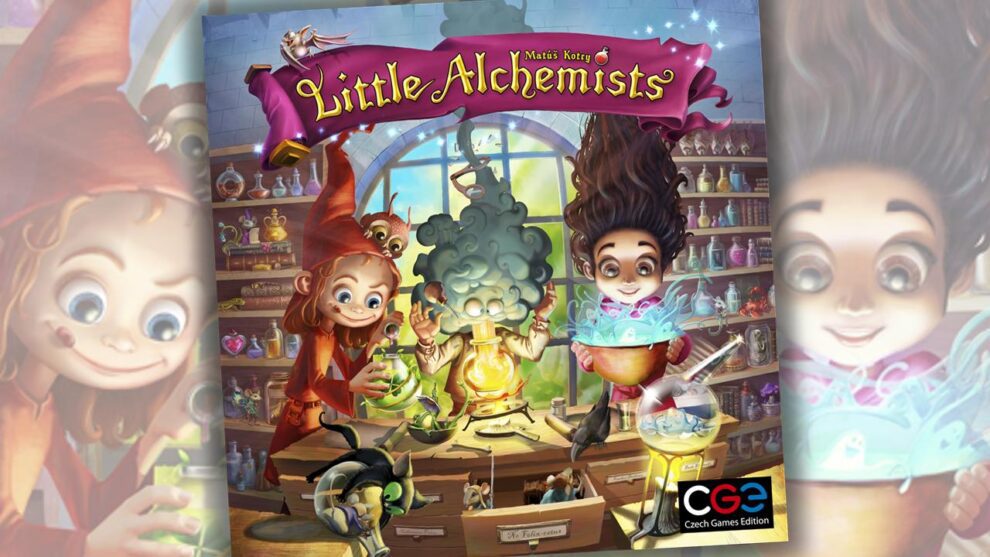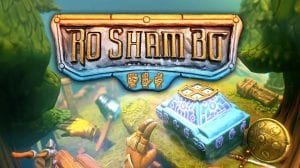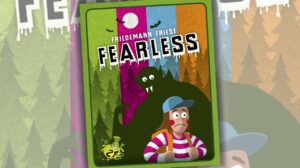Disclosure: Meeple Mountain received a free copy of this product in exchange for an honest, unbiased review. This review is not intended to be an endorsement.
I sat down with my kids recently to try the new family game Little Alchemists from Czech Games Edition. It’s based on the game Alchemists, both of which are designed by Matúš Kotry, with the latter squarely aimed at serious strategy gamers. The family version has cute box art and a bright, screaming “Ages 7+” stamped on the box’s side runners. I was excited to see if my two kids, ages 10 and 8, would lean in or out on this new design.
On their second turn of the game, my 10-year-old turned and looked me in the eyes. “I love this game,” they said.
I score all family-weight/kids games the same way: is it fun for adults, and did my kids want to play it a second time immediately?
How’s this for a recommendation: we played the game five times over the course of a single weekend.
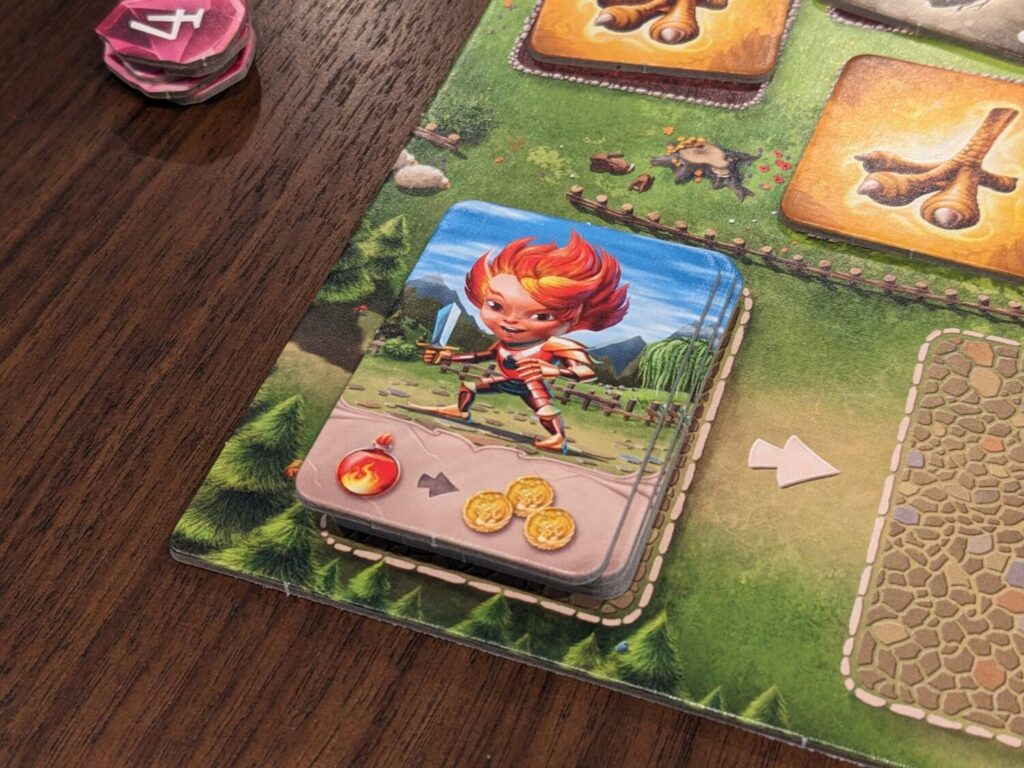
Actually, Let’s Increase Your Screen Time
Little Alchemists is a 2-4 player deduction game that plays in about 30 minutes regardless of player count. It also has a mini campaign/legacy element—there are six unlockable boxes of new modules (think Dorfromantik: The Board Game) that extend the game from a form of “Baby’s First Deduction Game” to “OK, this is a deduction game that works for not just kids, but also for my ‘muggle’ extended family members during Thanksgiving.”
In its base game form—before any of those boxes are unlocked—players take on the role of junior wizards looking to make an impression by mixing a pair of ingredients to spit out one of the game’s three initial potions: red, blue, or green. Little Alchemists, like Kotry’s most recent design, Deal with the Devil, requires the use of a free app that allows players to scan the two current testing ingredients on a phone that will spit out what those ingredients make in the current game. (Each new game in the app mixes up what the six ingredients will form.)
Using a small triangular grid behind each player’s blocking screen, players will secretly check off what a pair of ingredients makes, but only the active player knows what went into that concoction. So while everyone knows that Player A made a green potion, only Player A knows the two ingredients that went into the pot.
Meanwhile, as players make potions, they then take new ingredients into their supply. This process will slowly reveal new game-controlled customers who want to buy specific potions for their own adventures. Make a potion that the current customer wants, and you will earn a small bonus in coins. At the end of the game, the player with the most coins wins.
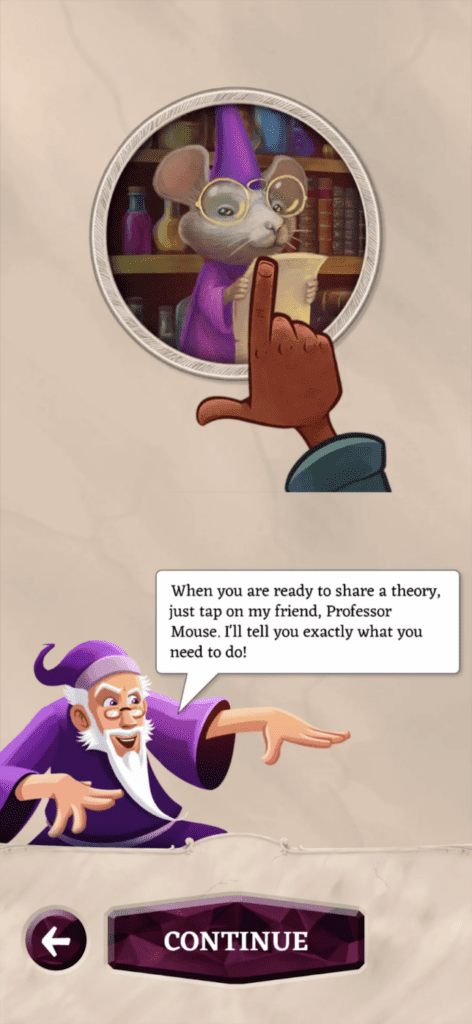
Then, the rules change just a tad. I won’t spoil any of that here, but through five boxes (we opened the fifth box on our sixth playthrough, due to the way keys are earned towards new content) the kids have been delighted to see how game elements have changed to make the game a little more interesting each time.
If anything, I think the unlocks come just a bit too slowly. Both my kids thought the first game was a bit too light, for example. Right before opening the third box, one of my kids actually guessed correctly at what would be included because it was clearly lacking in the second playthrough.
But the whole thing is held together by the app—and kids love apps. Kids love apps so much that I was shocked to see how many times the child sitting to my left waited with open hands for me to hand them the phone so they could hold it in their hot little hands. (We limit screen time somewhat aggressively during the week at my house.) The app makes a fun little confirmation sound whenever you make a new potion. And there’s a short cinematic each time you end a game, and the kids watched those like they were actual movies.
Despite the fact that I won the majority of the time—I don’t think of myself as a deduction game expert, but I do play a lot of deduction games—the kids enjoyed the experience of losing, which isn’t always true. For them, it was fun to feel like they were in a lab, mixing ingredients, and testing theories about what each potion was made of when seeing what other players made.
Plus, the playtime is quick. All my plays were with exactly three players, and once they had the rhythm down of how the app worked, the kids took very fast turns.
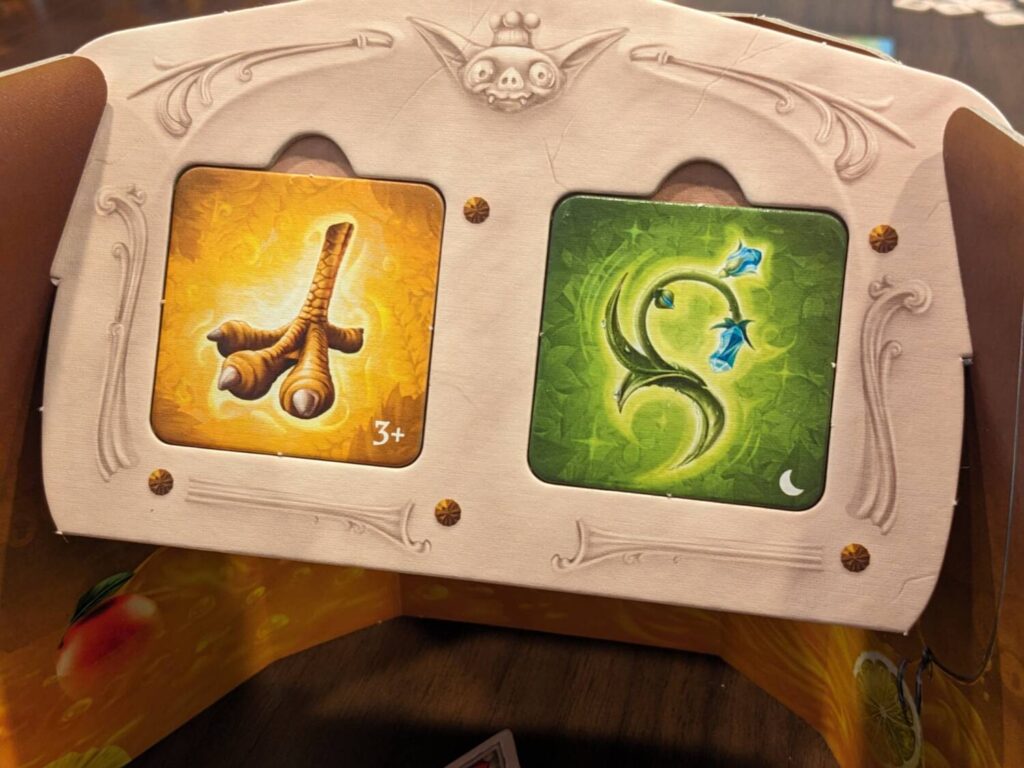
Mostly, The Right Cocktail
Little Alchemists has been a great time at the table, so far. My wife, who hasn’t joined for any of these plays, wondered if the fascination with Little Alchemists is tied to the gameplay, or tied to the progression system.
“I know they are having fun,” she started. “But I wonder if that’s because they want to see what’s inside the next box.”
There’s some truth to that. We are five boxes into a seven-box unlock system, and I have also wondered whether the kids will play Little Alchemists after they open the final box and play with whatever treasures are in that mix of goodies.
Of course, we should turn that around a bit—how many times did I go back to play Pandemic Legacy: Season 1 after we wrapped up that campaign? (Zero.) How many times did I go back to play Clank! Acquisitions Incorporated after my 11 plays? (Zero.) How many times have I played Arcs since I completed the three-session The Blighted Reach expansion? (Zero.)
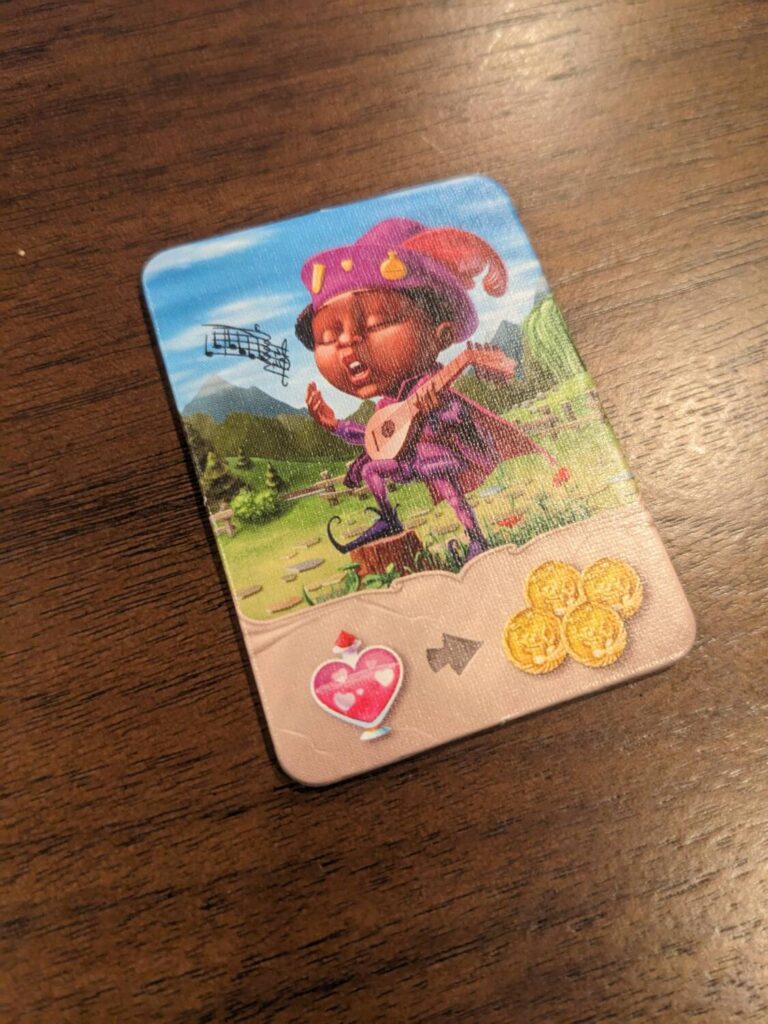
If I can get my kids to play a game 8-10 times, I should be thankful, right? How many of the games you bought this year have been played 8-10 times? One? Two? For most of my friends, that answer is either “zero” or “zero, because I buy games mostly to stare at them on my shelf.”
So I think the replayability question is an easy one—I think the hooks in this game will guarantee a few plays, if not a lot more.
The app is the app, and for some readers, the belief that apps don’t belong in games is understandable. I found that this drew my kids in, so I’m glad it was there. In terms of functionality, even CGE acknowledges that a room’s lighting greatly impacts the efficacy of the app’s camera system. In my very bright dining room, it was sometimes hard for the app to see what two ingredients were being used, so it took longer to focus on occasion. Didn’t break the game, but it did sometimes lead to longer turns (i.e., 30 seconds instead of five).
The wizard who helps guide the action in the app is mostly helpful, but all three of us agreed that the voice work was a little strange. Maybe CGE needed a more energetic wizard guy? More seasoned or wizened? I don’t have a good suggestion for a replacement here, but just know that we noticed it in a negative way.
Otherwise, we thought Little Alchemists was a great family experience that kept players coming back again and again. I’m excited to see what’s inside that seventh box!!


